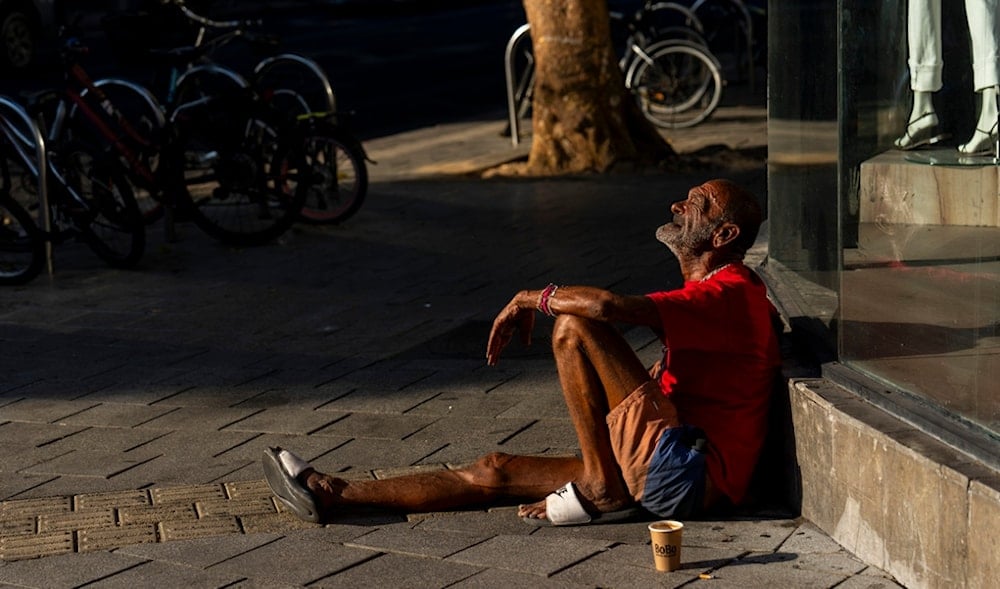1 in 3 Israeli families living in poverty, NGO says
The Yad Ezra v’Shulamit NGO reveals that it is supplying tens of thousands of families suffering financially with weekly food baskets.
-

An Israeli settler sits on the sidewalk next to a mall in Tel Aviv, occupied Palestine, on Thursday, August 15, 2024. (AP)
A third of families in "Israel" are living below the poverty line, according to Yad Ezra v’Shulamit, a charity that distributes thousands of food baskets weekly to struggling households.
Founded in 1988, the organization provides 12,000 food baskets each week, operating through 93 distribution points across the Israeli occupation.
Shimona Geffen, a representative of the NGO, claimed the organization tries to meet everyone's needs. Those in need can apply for assistance, and the organization verifies eligibility before delivering aid. "Once we receive the application form, we then verify that these people need food for various means," Geffen said.
Yad Ezra v’Shulamit’s work encompasses food distribution, offering clothing, school supplies, and support for weddings. "We are the lifeline to many families across Israel," Geffen said.
Demand for assistance rises significantly during the holiday season. "For the holidays, we deliver over 60,000 food baskets," Geffen noted, adding that the number depends on available donations.
A major shift, driven by the war on Gaza
The statistics significantly changed over the past few months. In December 2024, the Israeli humanitarian organization Latet revealed that a quarter of Israelis were grappling with poverty, and around a million were facing difficulties paying their primary dues and bills and were suffering in light of the continuously deteriorating economic state as the war raged on for its 14th month.
Consequently, 678,200 families (22.3%) and 2,756,000 individuals (28.7%) were struggling with poverty, including 1,240,000 children (39.6%), according to Latet.
Latet found that the economic situation has deteriorated for 65% of Israeli beneficiaries, and for 32.1% of the general public over the past year. Additionally, children in benefiting families have been significantly affected by the war: 44.6% in terms of academic achievements and 46.7% in their psychological condition.
As for the elderly, 52.6% of those supported by the government suffer from severe poverty, while more than a third of them (34.8%) experience severe food insecurity.
Furthermore, 84.8% of support beneficiaries suffer from energy shortages, 68.6% report that their mental health is poor, and 70.8% have forgone purchasing necessary medications and medical treatment. Additionally, the monthly expenditure of supported families is 1.7 times higher than their average income.
Meanwhile, 94.2% of food aid organizations did not receive government support to meet the needs arising from the war, and 70.9% reported a decrease in donations.

 3 Min Read
3 Min Read










